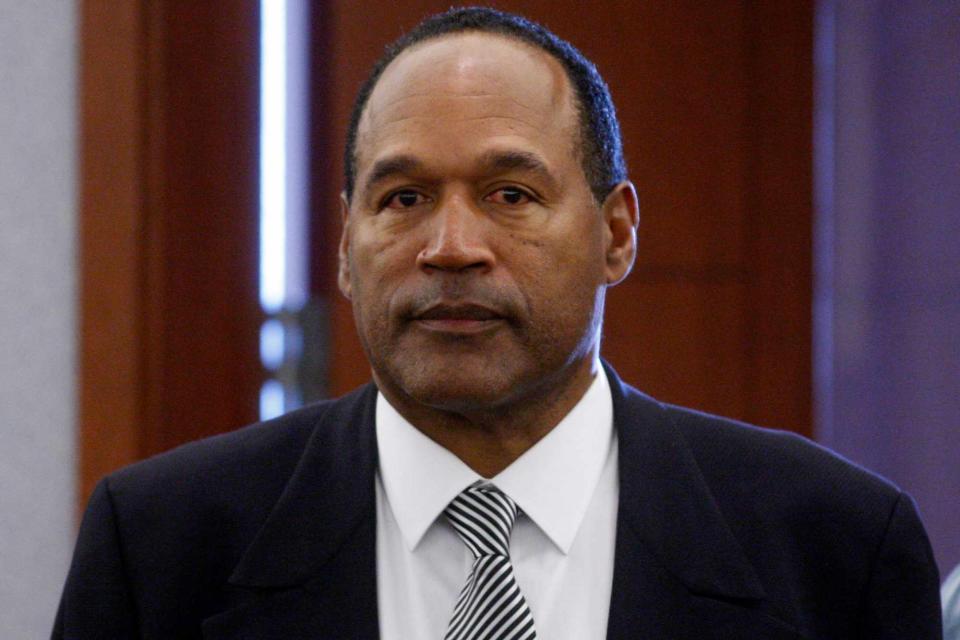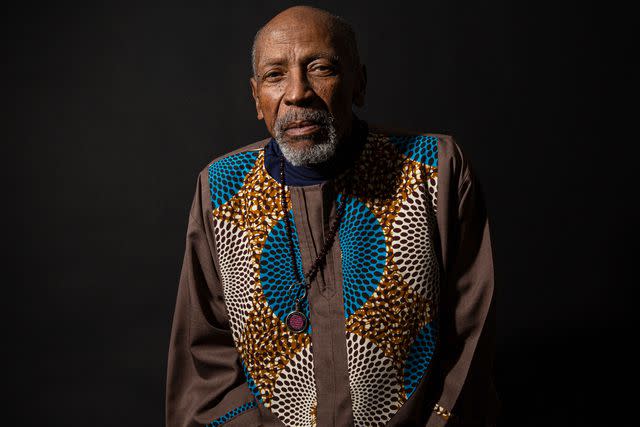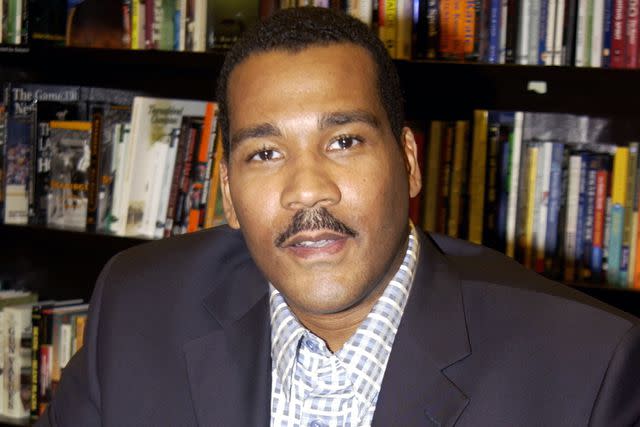O.J. Simpson’s Death from Prostate Cancer Is a Reminder Black Men Have a Higher Risk of Dying from the Disease
- Oops!Something went wrong.Please try again later.
Legendary actor Louis Gossett Jr., who died in March 2024, was also diagnosed with the disease

Isaac Brekken-Pool/Getty
O.J. SimpsonO.J. Simpson died at age 76 on April 10 following a prostate cancer diagnosis. His death came less than a month after legendary actor Louis Gossett Jr., who was also diagnosed with prostate cancer, died at age 87. Their deaths are a stark reminder that Black men have a heightened risk for not only being diagnosed with the disease, but also dying from it.
In a statement announcing his death, Simpson’s family said that “our father, Orenthal James Simpson, succumbed to his battle with cancer.”
While they did not name the specific kind of cancer, the late actor and football star’s prostate cancer diagnosis became public about two months before his death, according to USA Today.
And, according to a statement released by Pro Football Hall of Fame President Jim Porter following Simpson’s death, the former football star had received chemotherapy treatment before he died, CNN and USA Today reported.

Barry Brecheisen/Getty
Louis Gossett Jr.While no cause of death has been given by Gossett Jr.’s family, he was diagnosed with prostate cancer in 2010 and received treatment for the disease, CNN reported at the time.
The Oscar winner previously said that he wanted to go public with his diagnosis in order “to set an example for the large number of African-American men who are victims of this disease because of the comparatively low emphasis in our community on preventive examinations and early treatment.”
After skin cancer, prostate cancer is the second-most common cancer among American men, afflicting over one in eight American men, according to the American Cancer Society. For Black men, that figure is one in six.
Black men are also twice as likely to die from prostate cancer than White men, CNN reported.
They are similarly more likely to experience an aggressive form of the disease and be diagnosed at a later stage than their White counterparts, per USA Today.
Following the death of another prominent Black man who was diagnosed with prostate cancer, Martin Luther King Jr.’s youngest son Dexter King, in January 2024, CNN published an article urging Black men to, because of this racial disparity, consider getting prostate cancer screenings.
Like so many other diseases, it is far easier to treat at an earlier stage.

Maury Phillips/WireImage
Dexter KingAccording to CNN, doctors and health advocates believe that the racial disparity in deaths from prostate cancer can be attributed to several factors, including lack of quality, accessible health care and mistrust of the health care system in Black communities.
The outlet also reported that the stigma surrounding prostate cancer may be a contributing factor, as men — and specifically Black men — are less open to discussing their diagnosis and experience with the disease.
Never miss a story — sign up for PEOPLE's free daily newsletter to stay up-to-date on the best of what PEOPLE has to offer, from celebrity news to compelling human interest stories.
Speaking with CNN, Dr. Otis Brawley, a professor of oncology and epidemiology at Johns Hopkins University, pointed out the stigma surrounding rectal examinations specifically, noting that many of his Black patients have refused them.
The professor also said that death rates from prostate cancer among Black men are higher because health care facilities in marginalized communities often have less resources and medical professionals with less training.
“If you take Black men and White men who are stage II and give them equal treatment, you end up with equal outcome and equal prognosis,” Brawley told CNN. “If you remove the insurance issues, social issues, racism issues and give everybody equal quality of care, you end up with equal outcomes.”
Because of this racial disparity, the American Cancer Society recommends that men at high risk of having prostate cancer, including Black men, begin discussions about screening for the disease at age 45.
For more People news, make sure to sign up for our newsletter!
Read the original article on People.

